
Colorectal Cancer
Advertisement
Dr Alese discusses the importance of addressing health disparities among younger and minority populations and more.
Dr. Chakrabarti highlights 100% response with PD-1 blockade in dMMR rectal cancer and new chemoimmunotherapy for anal cancer.
Dr. Chakrabarti shares BREAKWATER, CheckMate 8HW, and CHALLENGE results improving metastatic colorectal cancer outcomes.
Dr. Chakrabarti highlights ATOMIC as the new standard for stage III dMMR colon cancer and compares it to the NICHE approach.
Dr. Lieu lists and describes DESTINY-Gastric04, CHALLENGE, MATTERHORN, BREAKWATER, and ATOMIC.
KRAS mutations drive GI cancers, but new inhibitors, vaccines, and combinations are advancing efforts to target them.
Dr. Kopetz explains how BREAKWATER aligns with Project FrontRunner to support accelerated approval in BRAF V600E-mutated CRC.
Dr. Weinberg recaps key ASCO Annual Meeting research, including MATTERHORN, ATOMIC CHALLENGE, BREAKWATER, and DYNAMIC-III.
Findings from the CheckMate 8HW trial highlight a potential shift in treatment strategy for patients with MSI-H/dMMR mCRC.
A three-year structured exercise program provided significantly longer DFS for patients with colon cancer.
The panel concludes with an in-depth discussion on the evolving role of ctDNA in colorectal cancer management.
The panel highlights the BREAKWATER study and explores practical considerations for therapy before biomarker results.
The panel discusses strategies for IO in CRC, including the ATOMIC trial and adoption of neoadjuvant checkpoint inhibition.
The panel explores the evolving treatment landscape for patients with MSI-high metastatic colorectal cancer.
The panel dives into the role of biomarker testing in CRC, noting how next-gen sequencing and MSI testing are essential.
Dr. Barnell discusses ColoSense's NCCN Guidelines inclusion for CRC and how it impacts the cancer screening landscape.
Dr. Weinberg explains why combining transcriptomic & genomic features can offer an advantage over prior biomarker ...
Professor Tie discusses DYNAMIC-III, a trial using ctDNA to guide chemo escalation in stage III colon cancer.
Dr. Lieu highlights the randomized trial that looked at atezo with the standard of care for stage III dMMR colon cancer.
The findings are considered practice changing and support EC+mFOLFOX6 as a new SOC for BRAF V600E-mutant mCRC.
Advertisement


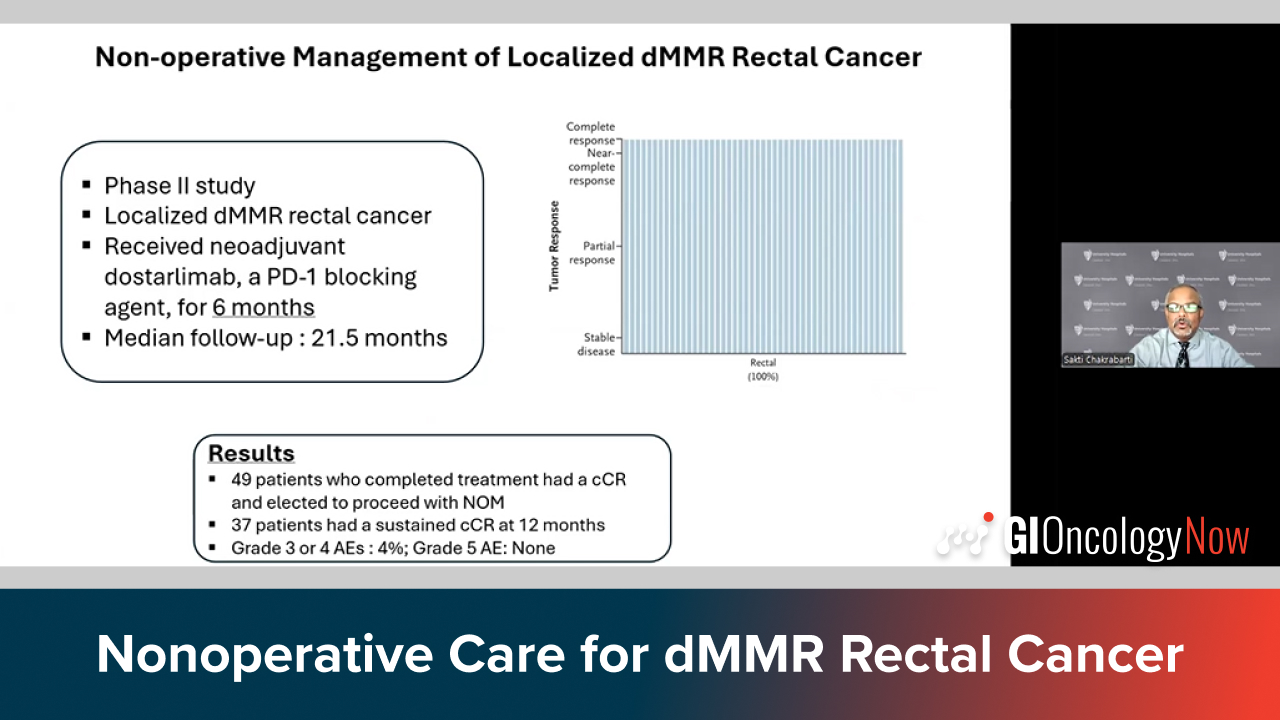
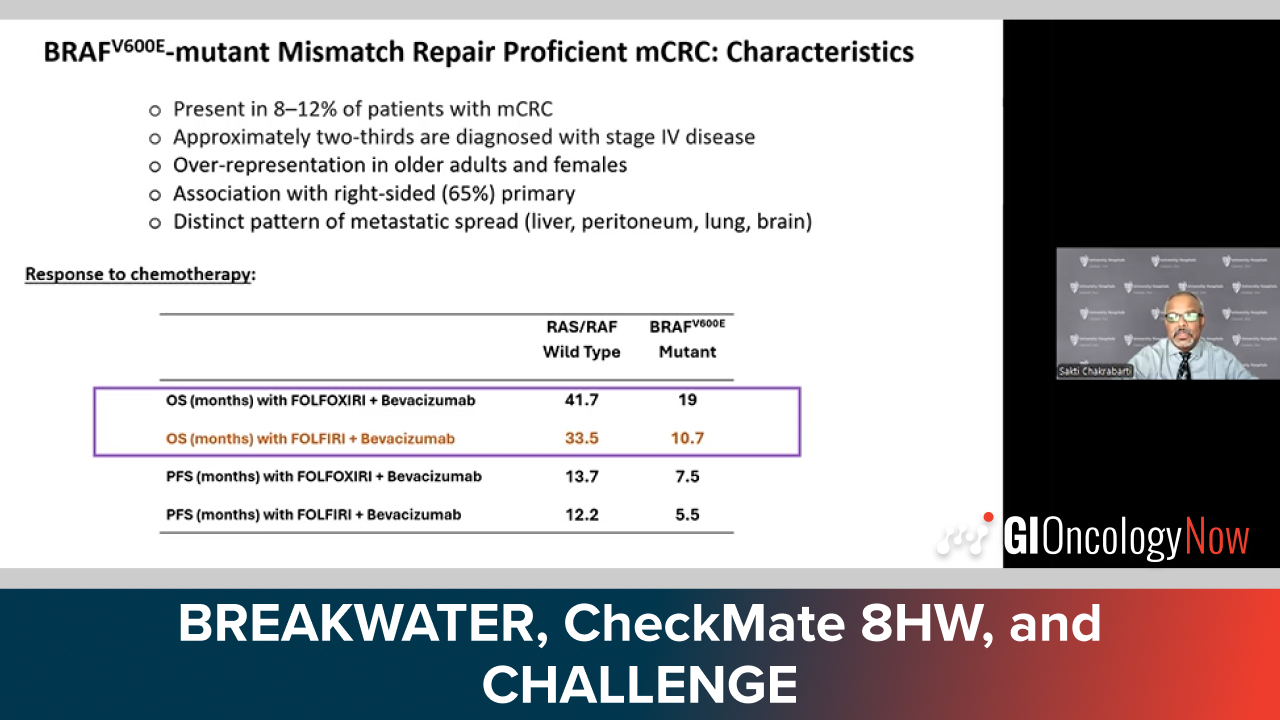
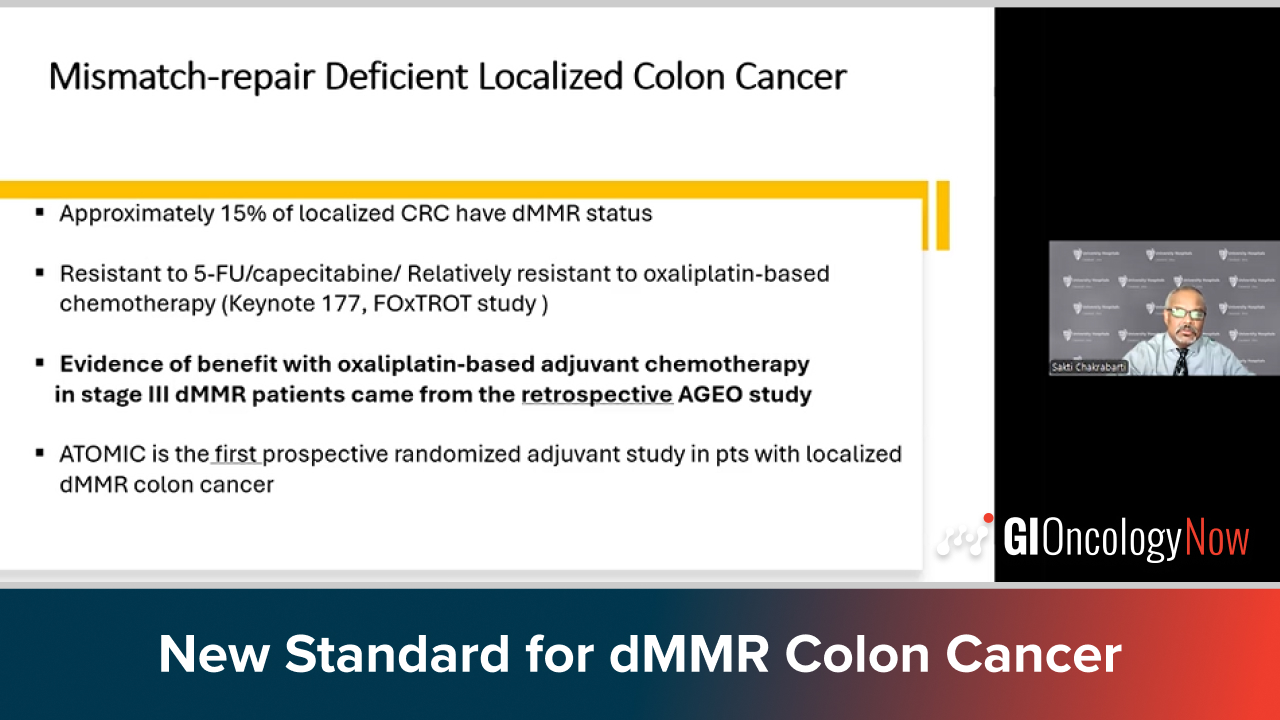

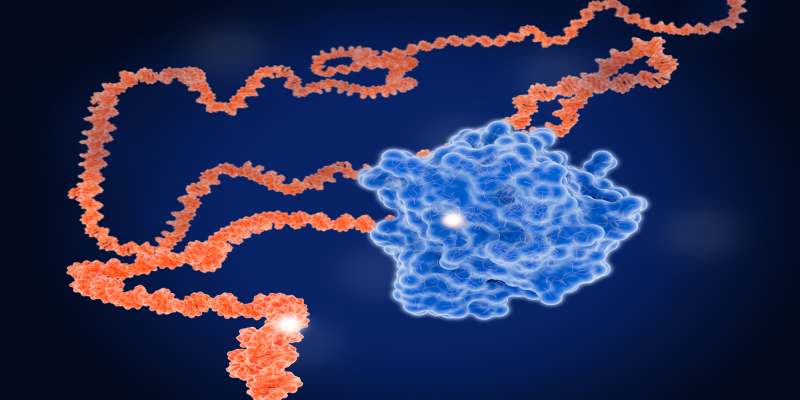

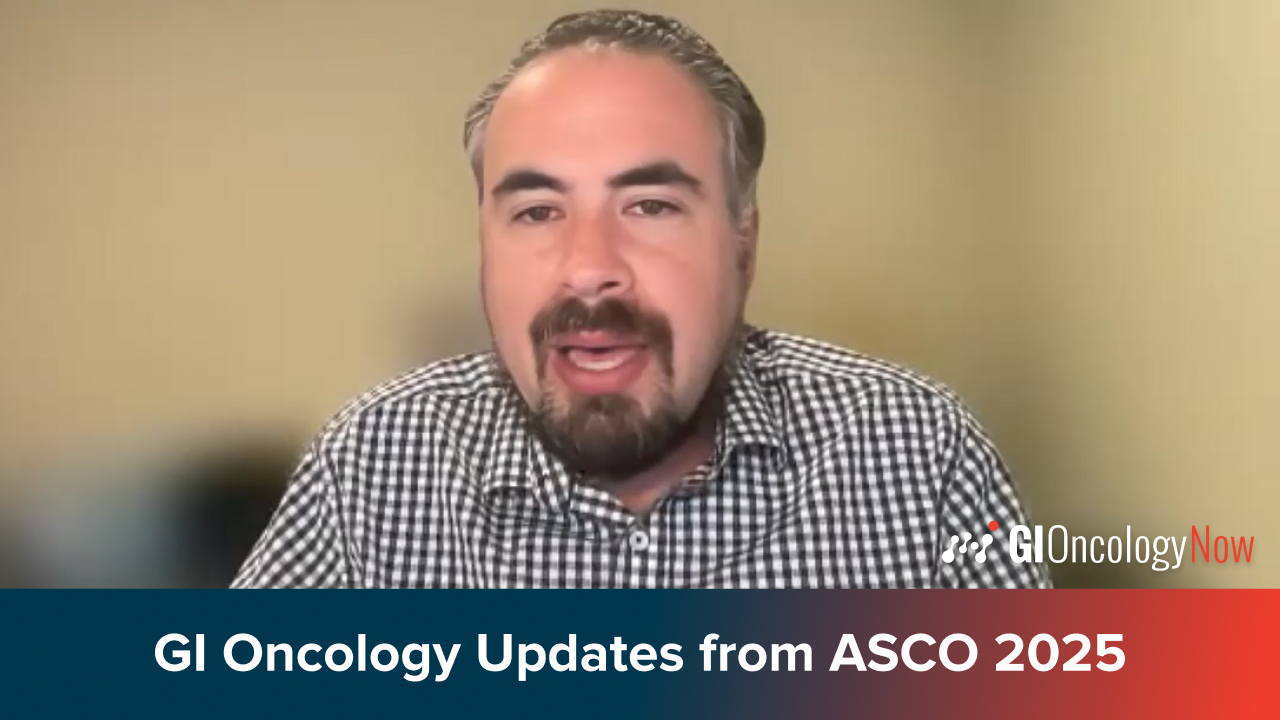


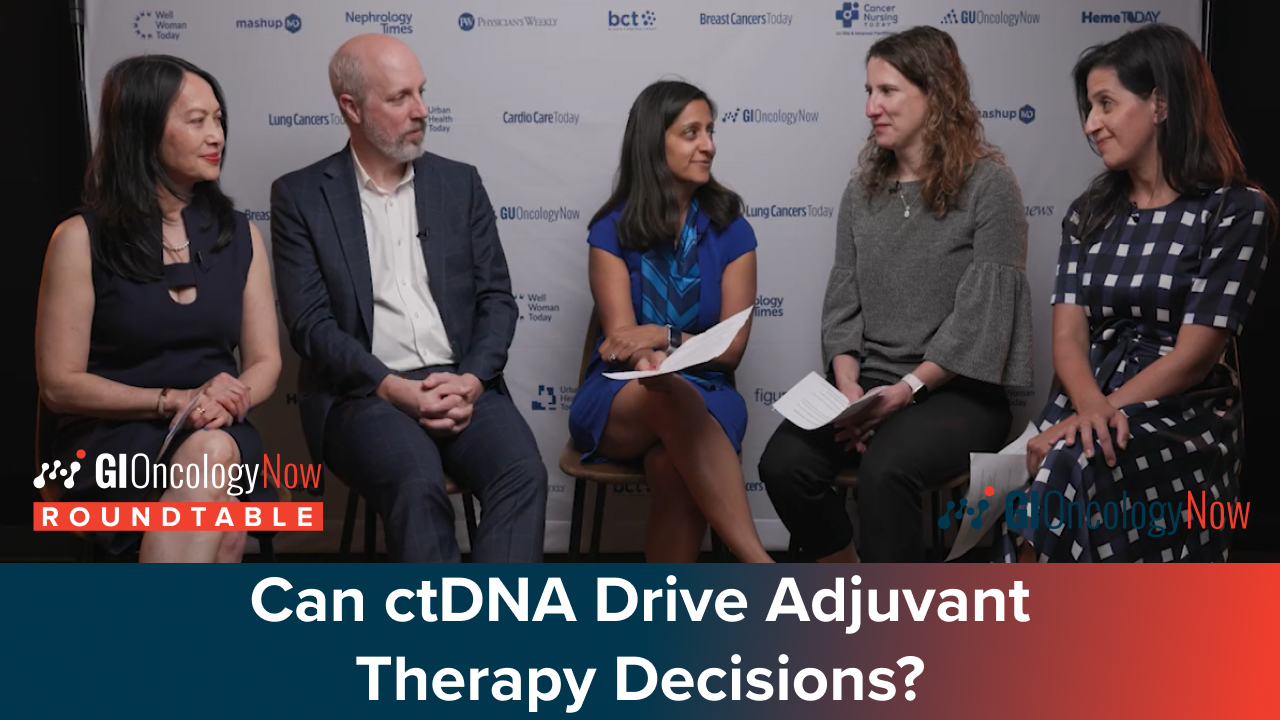
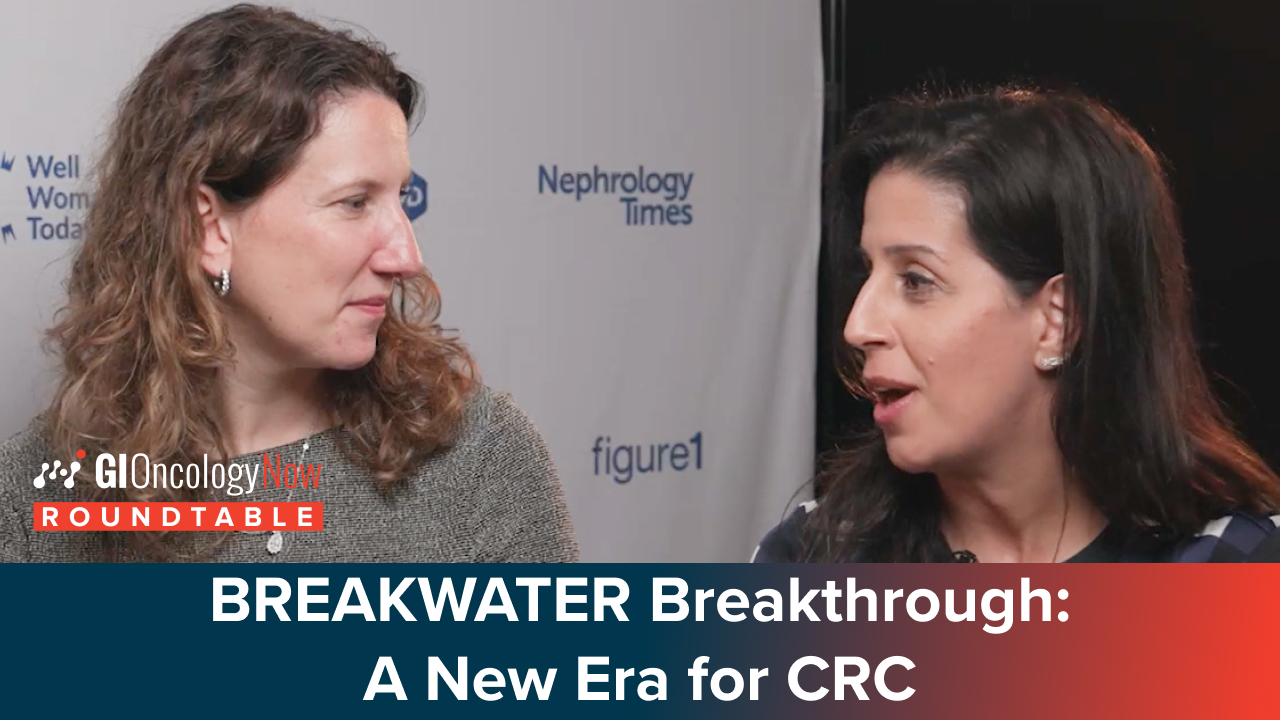


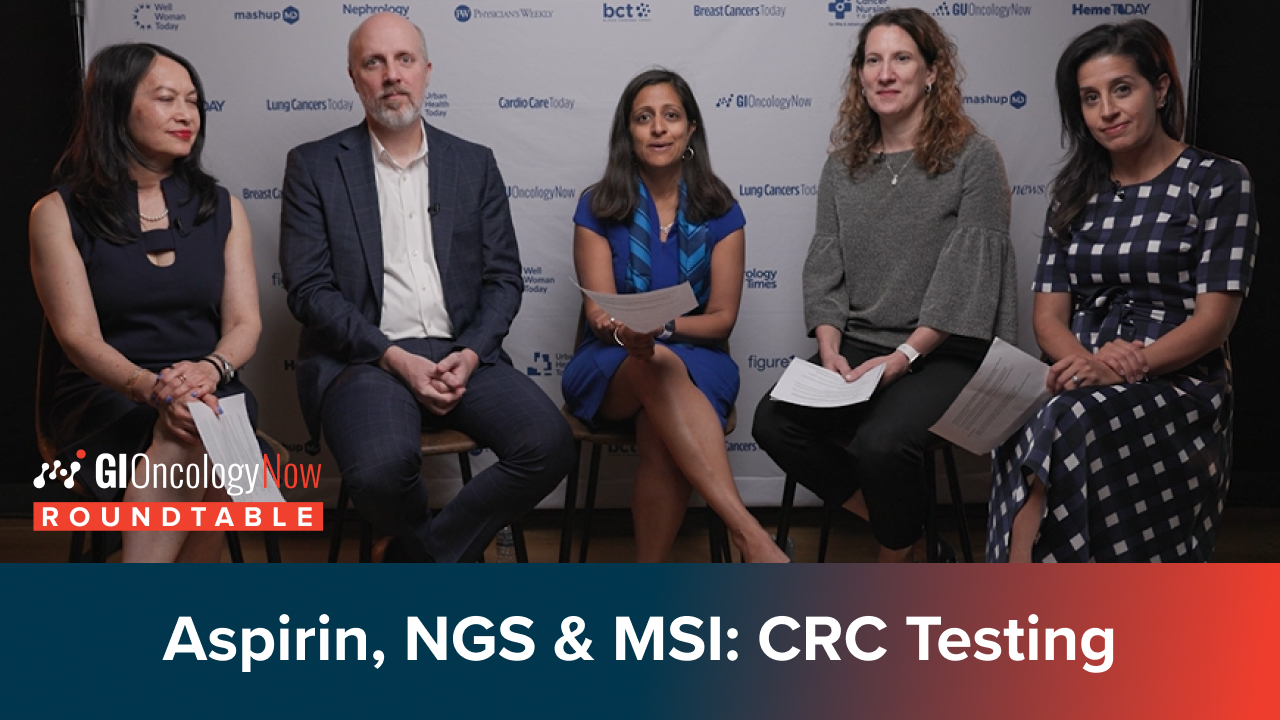
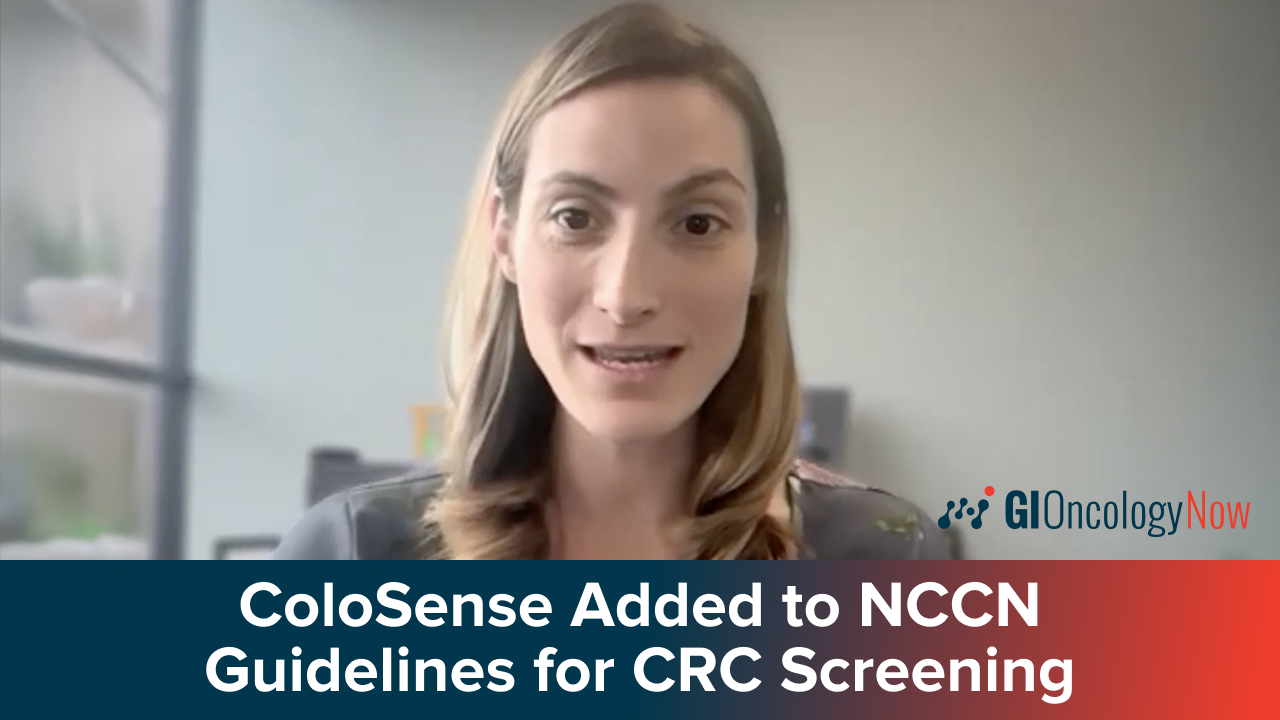
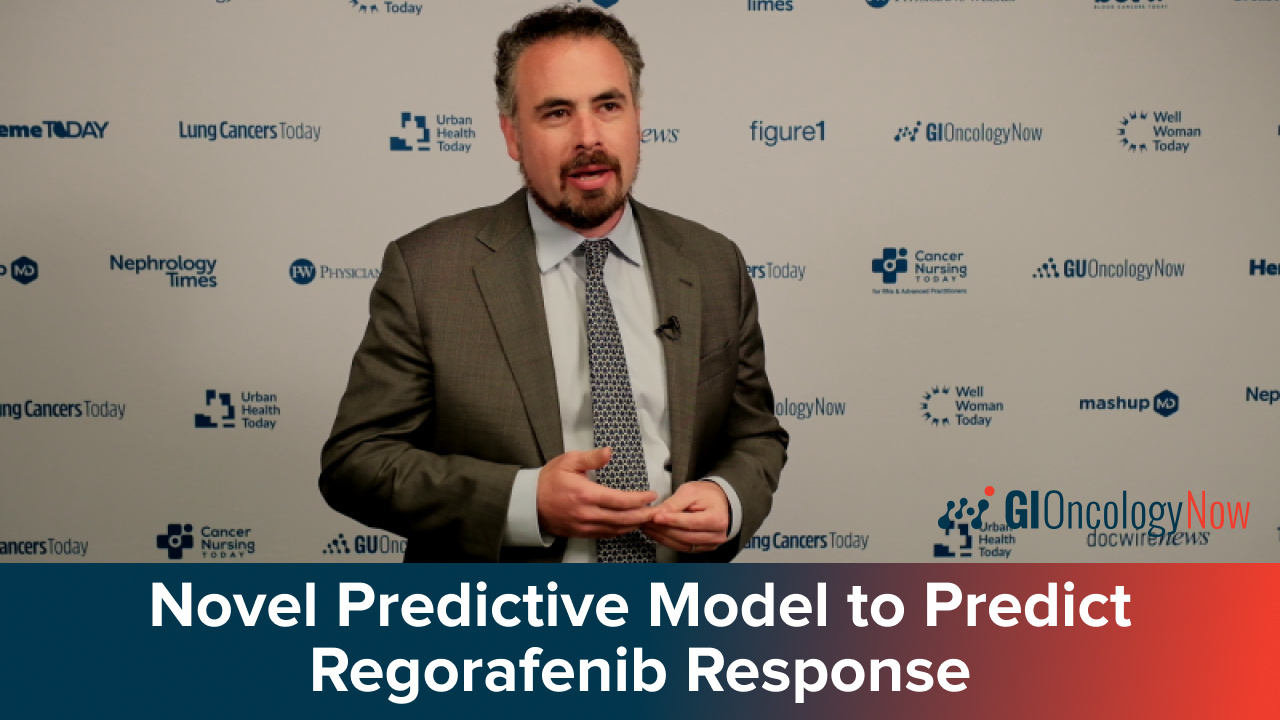

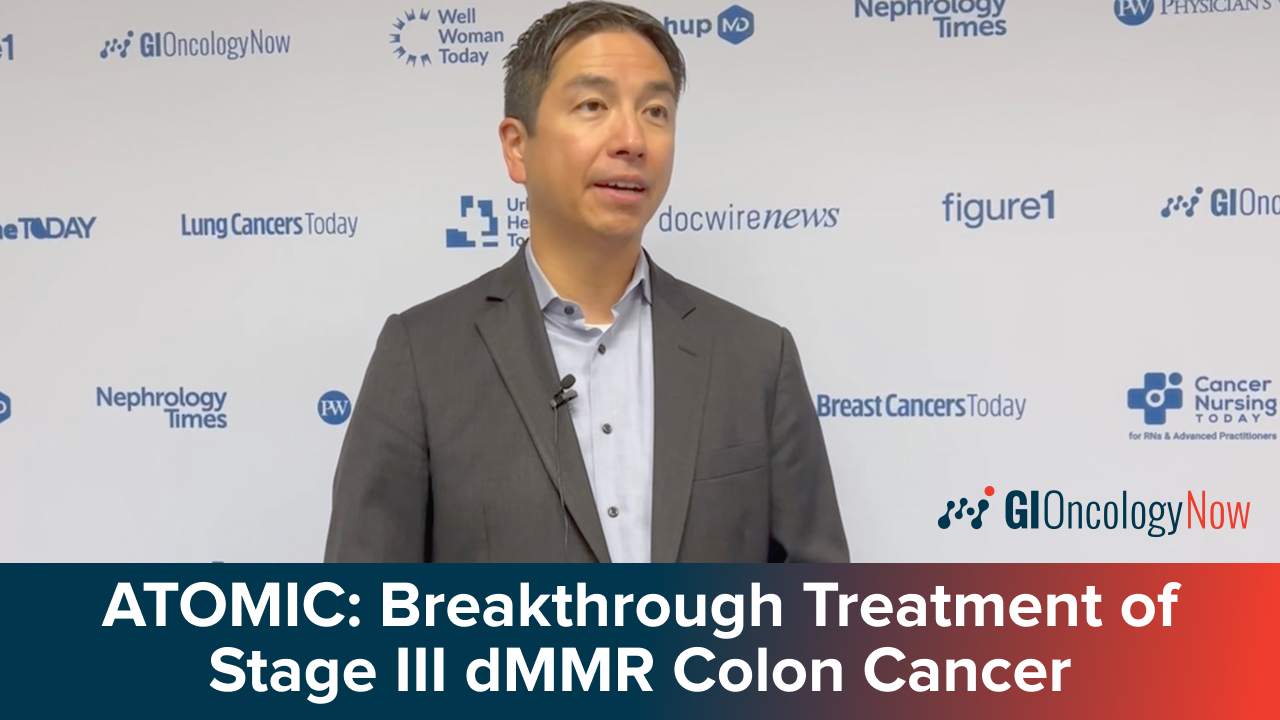


 © 2025 Mashup Media, LLC, a Formedics Property. All Rights Reserved.
© 2025 Mashup Media, LLC, a Formedics Property. All Rights Reserved.